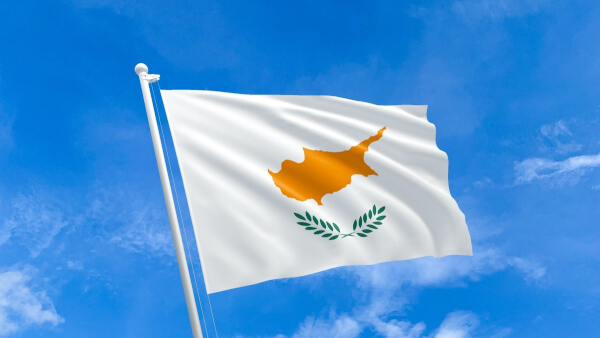Moving to Cyprus from the UK: a complete guide
Everything you need to know about moving to Cyprus from the UK. Read about visas, popular expat destinations, healthcare and more.

Dreaming of retiring to sun-soaked Cyprus? One of the most important things to get to grips with as a UK expat moving abroad is the country’s tax system.
For retirees moving abroad - or anyone with older relatives living in Cyprus - this means understanding how inheritance tax works there.
In this guide, we’ll be taking a detailed look at whether Cyprus has inheritance tax, along with everything else you need to know about inheriting property, money and assets in the country.
We’ll also show you how to send large amounts of money securely between countries using the Wise Account. This can be extremely useful if you have inheritance tax to pay, or want to send money from an inheritance back to the UK.
For now, let’s focus on inheritance tax in Cyprus.
| Table of contents |
|---|
Inheritance tax, known as IHT in the UK, is a tax paid to the government on the estate of someone who has died. The ‘estate’ usually encompasses all property, possessions and money in the bank.
Many countries have inheritance tax systems. Depending where in the world you are, the tax may be known as estate tax, inheritance tax or succession tax.
However, not all countries have this kind of tax in place. New Zealand, Singapore, Portugal and Canada are among a handful of countries which don’t charge inheritance tax at all.¹
They may have something similar in place though, such as in Portugal where stamp duty is payable on the value of inherited assets located within the country.
Cyprus doesn’t have inheritance tax, estate tax or any other death duties. The government abolished inheritance tax back in 2000, as part of wider tax reforms which aimed to create a more tax-friendly environment and encourage foreign investment.
This makes it unlike the UK, where inheritance tax is due on estates valued over a certain sum.
However, this doesn’t mean that there are no taxes at all due when you receive an inheritance in Cyprus.
You may still be liable for something known as transfer tax, payable to the Land Registry office in Cyprus. The rate you’ll pay depends on the closeness of your relationship with the deceased person. We’ll look at this in a little more detail shortly.
There’s also capital gains tax, which may be due on the profits of selling Cypriot real estate you’ve inherited.
In countries which do have an inheritance tax system, it is either the estate that is liable for the tax, or each individual beneficiary.
In the UK, for example, the tax is paid as a lump sum by the estate before inheritances are distributed to the beneficiaries. But in European countries like France and Spain, each beneficiary needs to pay inheritance tax individually if they inherit more than a designated personal tax-free allowance.
It’s completely different in Cyprus, as neither the beneficiary or the estate have any inheritance tax or stamp duty to pay. If the deceased person was domiciled in Cyprus or the asset was in the country, no inheritance tax is charged.
However, it’s crucial to double check that no inheritance tax is due in another country. For example, you may have to pay inheritance tax in the UK for assets you’ve inherited in Cyprus.
It’s important to get professional tax advice to understand which country’s tax laws apply to you, especially if you live between countries or have property in multiple countries.
As Cyprus doesn’t have inheritance tax, there aren’t any rates, allowances or thresholds you need to know about - either as a retiree planning for the future, or a potential beneficiary.
There are some situations though where some form of tax may be due.
One of these relates to selling real estate property in Cyprus that you’ve inherited from the deceased person.
In this case, you may be liable for capital gains tax (CGT). This is a tax on any profits you make from the sale of an asset, the difference in value since you bought it (or in this case, inherited it).
There’s a flat CGT rate of 20% in Cyprus, which applies to both residents and non-residents. There are some exemptions and allowances, such as a tax-free allowance if the property has been your main home for the last 5 years.³
Another fee you may be liable for as a beneficiary of an inheritance is a transfer fee. This is charged at rates based on your relationship to the deceased person:⁴
| Relationship to the deceased | Transfer tax rate |
|---|---|
| Child | 4% |
| Spouse | 8% |
| Third-degree relative (for example, cousin) | 8% |
The value of the asset(s) you’re inheriting may also affect the tax rate.
As Cyprus doesn’t have any inheritance tax laws, it means that all assets within an inherited estate are free from tax.
Crucially though, this may only mean assets held in Cyprus. If you inherit assets from another country, you may be liable for inheritance tax under that country’s rules.
To avoid an unexpected tax bill, it could be a good idea to seek professional tax advice.
After reading this, you should have a better idea of how the Cypriot inheritance system works. It’s great news that in most cases, you won’t have to pay any inheritance tax.
But if you do need a way to pay bills in Cyprus, send inherited money back to the UK or generally manage your finances between countries - Wise is a great solution.
With Wise, you can hold and convert between 40+ currencies in your online account. And you can send money worldwide for low, transparent fees* and mid-market exchange rates.
If you’re sending a large sum between countries, read our quick guide on what documents you’ll need. You might also want to know about the best UK accounts for receiving an inheritance.
Whether you’re paying foreign bills or trying to get the best exchange rates when repatriating funds from overseas back to the UK, your Wise account can do it all.
Here are some of the most common questions:
Inheritance laws in Cyprus work a little differently to those in some other countries.
The country has something known as a ‘forced heirship regime’. It can be a little complicated, but essentially it ensures that the deceased person’s spouse, children and immediate relatives can’t be disinherited - either by a will or another circumstance.⁵
Under the Cyprus inheritance laws, a statutory portion of the estate must be left to the immediate family. The other portion can be left to anyone, according to the wishes stated in the person’s will - or in case of intestacy, the country’s laws of succession for inheritance.⁵
No, Cyprus doesn’t charge any inheritance tax to either citizens or foreigners. If the deceased person was domiciled in Cyprus or the asset was based in Cyprus, neither the estate or beneficiaries will pay inheritance tax in Cyprus.
However, if you are UK domiciled and you inherit an asset in Cyprus, you may still be subject to UK inheritance tax laws.
The threshold for paying inheritance tax is currently set at £325,000.⁶ So if you inherit anything above this value, you may have UK inheritance tax to pay.
Yes, the UK and Cyprus have a double taxation agreement in place. This kind of agreement is designed to prevent an individual from paying tax twice, on the same income - once in the UK and again in Cyprus.
As Cyprus doesn’t have inheritance tax, the double taxation agreement doesn't really apply. However, it may apply to other kinds of taxes, such as income tax or capital gains tax.
Many countries worldwide have no inheritance tax system, although other systems such as stamp duty or transfer tax may be used instead.
Here are just a few of the countries which don’t have inheritance tax, aside from Cyprus:⁷
In Cyprus, capital gains tax (CGT) isn’t charged when property is transferred due to death, such as when you inherit a property from a relative.
However, it may be charged when you come to sell the property. There are some exemptions, such as if you’ve been living in the property as your main home for at least 5 years before selling it, or if you use the proceeds from the sale to buy another property. In this case, you may only need to pay CGT when you come to sell the second property.
As with all things tax-related though, it’s always best to get advice from a professional to make sure you understand your obligations. This is especially true for assets held in a foreign country, where the rules and regulations may be complex and different to what you’re used to.
Sources used:
Sources last checked on date: 23-Jul-2025
*Please see terms of use and product availability for your region or visit Wise fees and pricing for the most up to date pricing and fee information.
This publication is provided for general information purposes and does not constitute legal, tax or other professional advice from Wise Payments Limited or its subsidiaries and its affiliates, and it is not intended as a substitute for obtaining advice from a financial advisor or any other professional.
We make no representations, warranties or guarantees, whether expressed or implied, that the content in the publication is accurate, complete or up to date.

Everything you need to know about moving to Cyprus from the UK. Read about visas, popular expat destinations, healthcare and more.

A list of the top banks in Cyprus, including Bank of Cyprus, Hellenic Bank, Alpha Bank, AstroBank and Eurobank Cyprus.

Your essential guide to buying property in Cyprus as a foreigner. Learn about average prices, best places to buy and key steps to purchase.

Everything you need to know about retiring to Cyprus from the UK, including visas, post-Brexit rules and more.

Cost of living in Cyprus varies from region to region. This guide outlines what you can expect in terms of living costs.

If a destination wedding appeals to you, consider marrying your beloved in Cyprus. With the mild weather, the beautiful scenery and the delicious food, you...